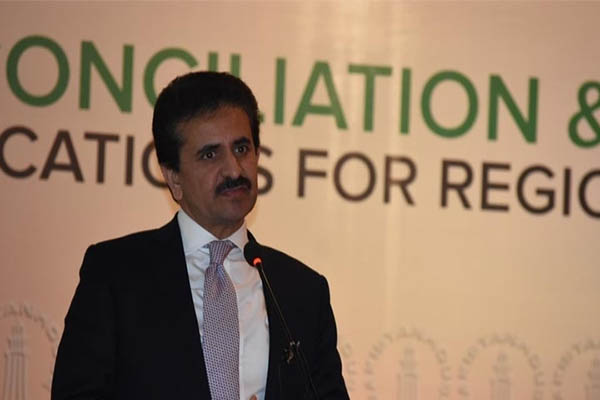
Foreign Office spokesperson Zahid Hafeez Chaudhri. Courtesy Ministry of Foreign Affairs
In statement, Foreign Office claims Investment Climate Statements 2021’s conclusions are based on unverifiable sources
Pakistan on Tuesday rejected a U.S. report criticizing its judicial system, stressing that the courts were independent and performed their functions in accordance with the Constitution.
“We take strong exception to the gratuitous and unwarranted comments made in the report on Pakistan’s judicial system,” Foreign Office spokesman Zahid Hafeez Chaudhri said in a statement issued in response to media queries regarding the U.S. State Department’s Investment Climate Statements 2021. “The judiciary in Pakistan is independent and the courts are functioning in accordance with the Constitution and laws of the country. The allegations to the contrary are firmly denied as factually incorrect and misleading,” he added.
The U.S. State Department, in the report, had suggested that even though Pakistan’s judicial system theoretically operated independently of the executive branch, the reality is quite different. “Pakistan’s judiciary is influenced by the government and other stakeholders. The lower judiciary is influenced by the executive branch and is seen as lacking competence and fairness. It currently faces a significant backlog of unresolved cases,” it said.
“Theoretically, Pakistan’s judicial system operates independently of the executive branch. However, the reality is different, as the establishment wields significant influence over the judicial branch. As a result, there are doubts concerning the competence, fairness, and reliability of Pakistan’s judicial system. However, fear of contempt of court proceedings inhibit businesses and the public generally from reporting on perceived weaknesses of the judicial process.,” it said, adding that even though Pakistan’s legal code and economic policy did not discriminate against foreign investments, “enforcement of contracts remains problematic due to a weak and inefficient judiciary.”
The report noted that Pakistan had ranked 124 out of 180 countries on Transparency International’s 2020 Corruption Perceptions Index, adding corruption persists due to lack of accountability and enforcement of penalties, followed by the lack of merit-based promotions and relatively low salaries.
“Although the higher courts are widely viewed as more credible, lower courts are often considered corrupt, inefficient, and subject to pressure from prominent wealthy, religious, political figures and the establishment. Political involvement in judicial appointments increases the government’s influence over the court system,” it added.
In his rejoinder, Chaudhri said that the Government of Pakistan, as a “vibrant democracy,” believed in the separation of powers between the executive, legislative and judicial branches of the state. “There is no question of any coercion or pressure on Pakistan’s judiciary. The baseless assertions made in the report are contradicted by innumerable decisions by Pakistani courts at all levels that meet the highest standards of judicial independence,” he said.
Noting that the statement had acknowledged the progress made and reforms undertaken by Pakistan in improving its business and investment climate, Chaudhri regretted “it speculates on alleged shortcomings in Pakistan’s regulatory framework and bases its conclusions on unverifiable sources.”
The spokesperson said that mutually beneficial cooperation in economy, trade and investment with the global community, including the U.S., remained a key priority of the Government of Pakistan. “We will continue to take steps to optimally realize Pakistan’s geo-economic potential,” he added.
